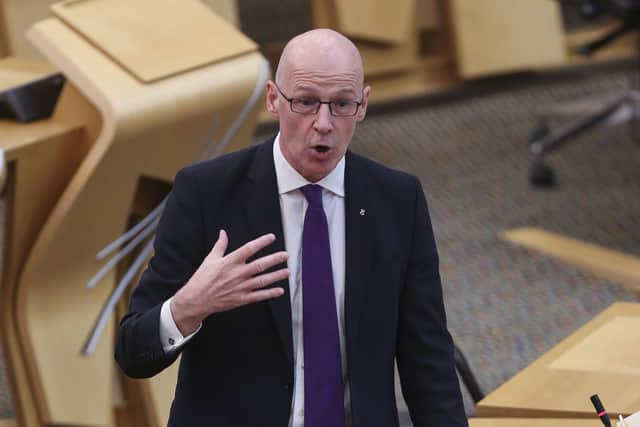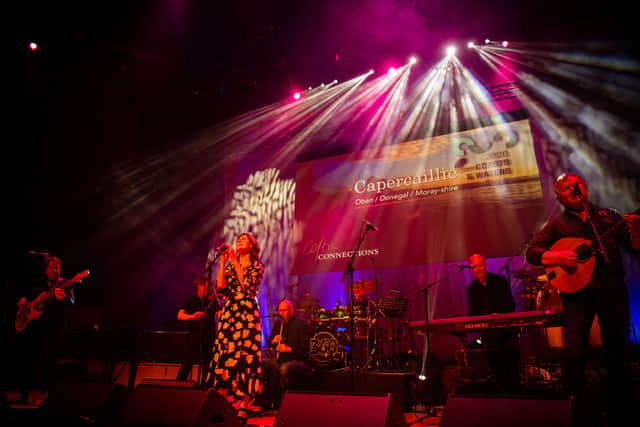John Swinney: Extending Covid passports scheme will ‘encourage and motivate’ more people to get vaccinated
Deputy First Minister John Swinney said the move would also provide greater “assurance” to the public over the safety of returning to venues and events.
He was speaking on Wednesday in the wake of the Government announcing that it was considering “extending the scope" of Scotland’s Covid certification scheme.


Advertisement
Hide AdAdvertisement
Hide AdFirst Minister Nicola Sturgeon spoke of her concern Scotland still had “too many eligible people not yet fully vaccinated” and told people who had no good reason not to be “you are putting your own and other people’s lives at unnecessary risk”.
Introduced in October, the scheme required the need for proof of vaccination to be shown to gain entry to all events for more than 10,000 people, unseated indoor events for more than 500 people, outdoor events for more than 4,000 people and all nightclubs.
In December, the Government agreed to allow proof of a negative flow test as an alternative to proof of vaccination, but stopped short of introducing the scheme in more settings.
On Tuesday, Ms Sturgeon announced a tightening of the rules for organisers of outdoor events ahead of their return on Monday by insisting the Covid status at least 50 per cent of them must be checked, instead of the previous 20 per cent. Attendees must have had a booster if their second vaccine dose was more than four months ago in order to be “fully vaccinated.”


Leaders of the Scottish hospitality sector claim the government has “torpedoed” hopes of a recovery by keeping festive season restrictions in place until at least January 24 while threatening to further roll out Covid certification.
Asked on BBC Scotland where the scheme could be extended to, Mr Swinney said: “There is obviously a range of scenarios that could be applied.
"What the First Minister said is that we will consider the appropriateness of extending the scope of the certification scheme that is in place, obviously to provide greater assurance to the public and for the wider management of the pandemic that we have a very high level of vaccinated individuals and individuals who are testing negative on lateral flow devices attending particular events.
Advertisement
Hide AdAdvertisement
Hide Ad“That will be good in giving a message in the wider public health agenda and will be good for members of the public in building their assurance about the safety of venues they might be attending.
“What’s appropriate about the approach we’re taking is the necessity of encouraging more individuals to participate in the vaccination programme, which was one of the foundations of the arguments we brought forward for introducing the vaccine certification scheme.
“We’ve got a very successful vaccine programme within Scotland. We’re the highest vaccinated country within the United Kingdom.
“But we obviously have some people who are not yet vaccinated. We want to continue to encourage and motivate individuals to participate.”
Mr Swinney denied suggestions that expanding the scheme would effectively exclude people from events.
He said: “The Government added to the vaccine certification scheme the ability of individuals to demonstrate their status by producing a negative lateral flow test.
"We have addressed the issue because of the steps that we’ve taken to use both vaccine certification and negative lateral flow tests."
Comments
Want to join the conversation? Please or to comment on this article.

